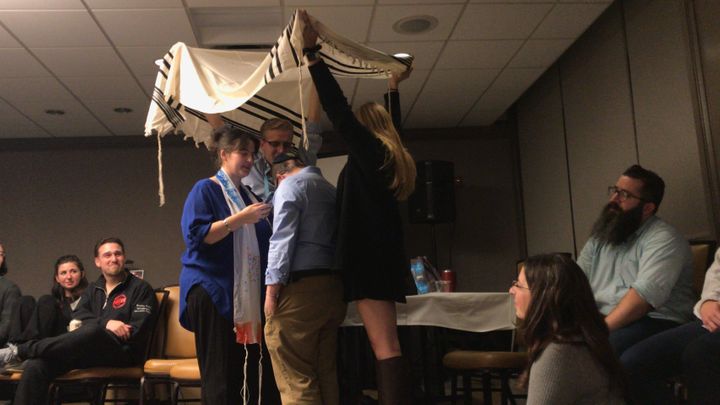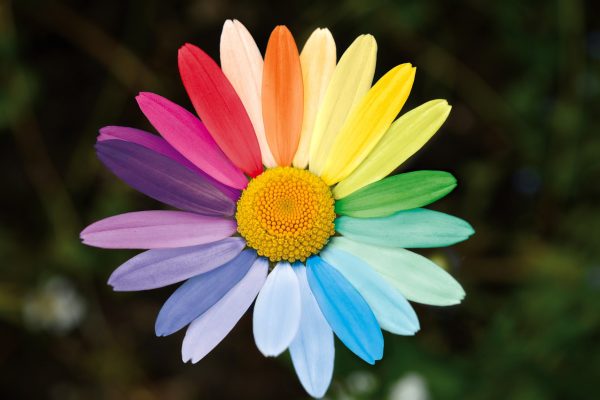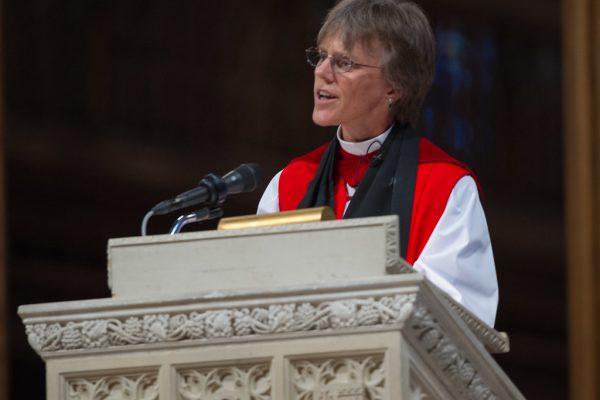Ritual Objects
Tallit
Bowl of water
Name certificate
Prep
Ask the person receiving a new name (indicated below as Participant) to select a name and two witnesses in advance
Welcome
Open with niggun for Lechi Lach, then switch to singing
L’chi lach, to a land that I will show you
Leich l’cha, to a place you do not know
L’chi lach, on your journey I will bless you
and (you shall be a blessing)3x l’chi lach
L’chi lach, and I shall make your name great
Leich l’cha, and all shall praise your name
L’chi lach, to the place that I will show you
(L’sim-chat cha-yim) 3x l’chi lach
This ceremony was done in Kislev, close to Hanukkah. Change the intro below match the season – in fall you might speak about returning to truest self/teshuvah. In winter you might speak about seeds under ground for Tu b’Shevat, or masks and identities for Purim. In spring you might speak about Passover and freeing ourselves.
Leader to Kahal (Community)
Welcome everyone! We are gathered here today, on [date], to celebrate the sparking of a light. Kislev is the darkest time of the year, but it’s also the season of Hanukkah – in just two weeks, we will bring the brightness of miracles into our homes and our hearts. We prepare to kindle flames, but the mystery of the season is that we are the flames, burning with a spirit that transcends the darkness. Light is not only outside of us, but inside us as well. We are also here to celebrate [Participant]’s inner light, and to welcome that light into the world. By releasing a Hebrew name that no longer serves them, [Participant] steps out of their own darkness – and by taking a new Hebrew name, they share the light of their truest self with their Jewish community.
We will begin today’s celebration with a release ritual. Then I will speak a little about the role of names and name changing in the Jewish tradition. [Participant] will tell you what this name change means to them. Then I will give [Participant] his new name, and each of you will be invited to share a blessing, wish, or hope for [Participant] on this next step of their journey. We will close with song and celebration.
Releasing
In the Jewish tradition, release often involves water. We use the mikveh, a ritual bath, to mark all kinds of transitions, and during the High Holiday season, we release our sins into living water so that we may enter the new year with a new beginning. [Participant] has written a letter to their former Hebrew name, which they will release into this bowl of water. Change often brings complicated emotions along with it – feelings of loss and hope, excitement and fear, joy and sorrow.
Leader to Participant
[Participant,] you’ve already written your letter, but I invite you to take a few deep breaths and really experience this moment – either out loud or silently, I invite you to tell your former name anything else you’d like to share before you release it. You might even say thank you to your former name for joining you in your journey to this moment – things that no longer serve us have played a role in our pain, our stories, and our becoming. We will stand with you in silent witness as you say goodbye.
Participant reads the letter out loud or silently, and then puts the letter into the bowl of water.
Names
Leader to Participant
[Participant,] now that you have released your former name, please share a little bit about your journey to this moment. Why did you choose to take a new Jewish name? What does this ritual mean to you?
Participant shares
Thank you. One of our Jewish ancestors, Avraham, was originally named Avram. In the book of Genesis, God tells Avram to leave his father’s house. “Lecha Lecha,” God says. “Leave your father’s home and go to a land that I will show you, to a place you do not know.” The words “Lech Lecha” are often mistranslated as “go forth.” In truth, lech lecha means “go to yourself.” Every outward journey is an inward journey. Once Avram leaves the world of his childhood, God changes his name to Avraham, a new name to represent the new person he became in the journey of his own becoming.
Another famous name change in the Torah is that of Ya’kov to Yis’rael. Yakov wrestles with a mysterious man in the wilderness all night, and when he triumphs at last, Yakov learns that the man was actually an angel of God. The angel said, your name shall no longer be called Ya’kov, but rather Yisrael, because you have wrestled with God and men, and overcome. Jews are now called Yisrael as a people because it means strugglers, or wrestlers-with-God.
Participant, like Yisrael, your new name represents the person you have become in all that you have overcome. All of your courageous wrestling and struggling have brought you to this sacred moment. And like Avraham, Your new name represents your own journey toward yourself.
Leader to Kahal
Participant chose two Hebrew names, _______. _______means _______. Speak a little about how this name fits.
The name _______ tells [name’s] story. It’s a story of _______.
May God who blessed our ancestors who came before us,
sustain [Participant] as we give them the Hebrew name they have chosen:
Say the full name
Blessings
When God tells Avram to begin this journey, God gives Avram a blessing. “I will make of you a great nation,” says God. “All will praise your name. On your journey I will bless you. And you shall be a blessing.”
Does anyone in this kahal, in this community of friends, have a blessing they’d like to offer to [name]?
Kahal offers blessings
Beit Din
I invite [witness 1] and [witness 2] to join [Participant] and me under this tallit for a final blessing:
May God bless you and keep you.
May God’s light shine upon you, and may God be gracious to you.
May you feel God’s Presence within you always, and may you find peace.
Share you own private blessing too.
Closing
When the moment is right, begin singing “Lechi Lach” again. And when the moment is right, switch to “s’man tov u’mazel tov.” Chair and hora strongly encouraged!
Read more about this ritual in this article. You can you watch a video of one of these rituals above. Image courtesy of Heather Paul.












